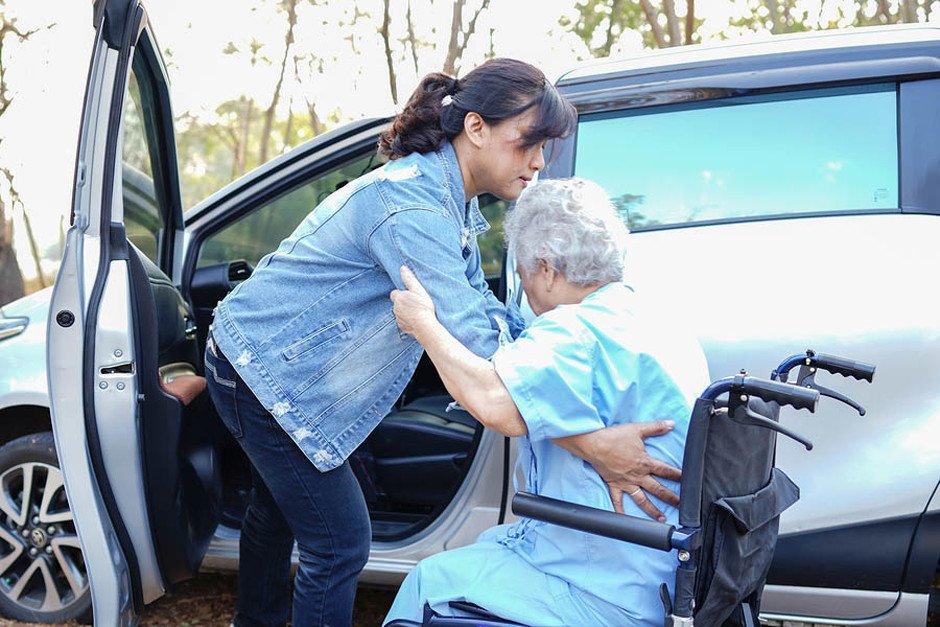Transporting elderly people over long distances can be a challenging task. This is because many of them are frail, making the process of moving them around very arduous. Given that many elderly people live alone, their family members are often left to look for suitable transportation means whenever they need to be moved. If you have an elderly relative that you’re thinking of moving, you’ll most likely start online by searching for something along the lines of “transport elderly long distance.” Here’s everything you need to know before your move.
How Does Aging Affect the Ability to Travel?
The older people get, the more likely they are to suffer from health conditions that can lead to a deterioration in their overall well-being. The most common means of transportation is by road. Many elderly people can drive well past the age of 60. However, debilitating health concerns may begin to set in, gradually eroding their ability to drive. For instance, their vision may begin to fail. This can make driving very challenging. Then there’s also age-related hearing loss and muscle or joint pains. All these factors, in addition to other existing health issues, can mean that an elderly individual cannot drive safely.
Sometimes, these age-related health issues are so bad that moving the elderly individual becomes challenging. This is when specialized moving services for the elderly become necessary.
Assessing Transportation Services for the Elderly
When you’re considering moving an elderly person from one distant location to another, it’s advisable to thoroughly assess the transportation mode. The idea is to ensure that the travel is as convenient and as comfortable as possible for the elderly person.
Factors to Consider When Coordinating Such Transportation
1)Will Insurance Cover it?
Unless you’re paying the transportation costs of an elderly person out-of-pocket, you may need to consider insurance coverage to help foot the bill. Don’t simply assume that your insurance policy (or the elder person’s) will cover it. When making such travel arrangements, contact the insurance provider to discuss the matter. This ensures that you get clarity regarding this matter, thereby avoiding any inconveniences later on. For example, some insurance providers may only agree to pay a specific percentage of the transportation costs if the elderly person needs urgent medical care.
2)What is the Health Condition of the Elderly Person?
Certain medical conditions make it unsafe for a person, especially an elderly one, to travel over long distances. For instance, if the elderly person has had a recent surgery, a case of stroke, or any one of several chronic obstructive pulmonary diseases (COPD), air travel becomes a risk.
Given the frailty of the bodies of many elderly people, there could be other undiscovered health conditions that make any long-distance travel a risky proposition. It’s always best to get a doctor’s approval before any arrangements for long-distance travel for an elderly person.
Consider any medical condition that requires specialized transportation as you look for such services.
3) Will You Accompany the Elderly Person? If so, What Items Do You Need for the Journey?
While rare, some companies that offer elderly travel may not want anyone accompanying the elderly person. Even those that do will have restrictions on what you can do or carry while en route to the final destination. This is especially the case if the elderly person being transported is in critical condition. This may have to do with legal issues like liabilities.
What to Expect from a Company That Transports the Elderly Over Long Distance
Long-distance travel presents several challenges that need to be addressed to make the travel as comfortable as possible. Some of the issues to be addressed include:
1.Feeding and personal care: The elderly person being transported needs to be fed regularly until the final destination. Similarly, they may need personal care with things like toileting. There need to be people who can help the elderly person to move from, say, a chair to a bed, during the trip.
2. Medical attention:If the elderly person being transported is a critically ill patient, there needs to be medical personnel onboard throughout the trip. This ensures that any medical issues are handled before reaching the final destination.
3.Entertainment: Boredom can be a real issue on a long trip. Some transportation companies allow for a pet to be brought along for companionship. Other avenues of entertainment like a television screen, wi-fi connection, or a DVD player can also be included.
With the info above, we know transporting your elderly loved one long distance will be a tad easier.






